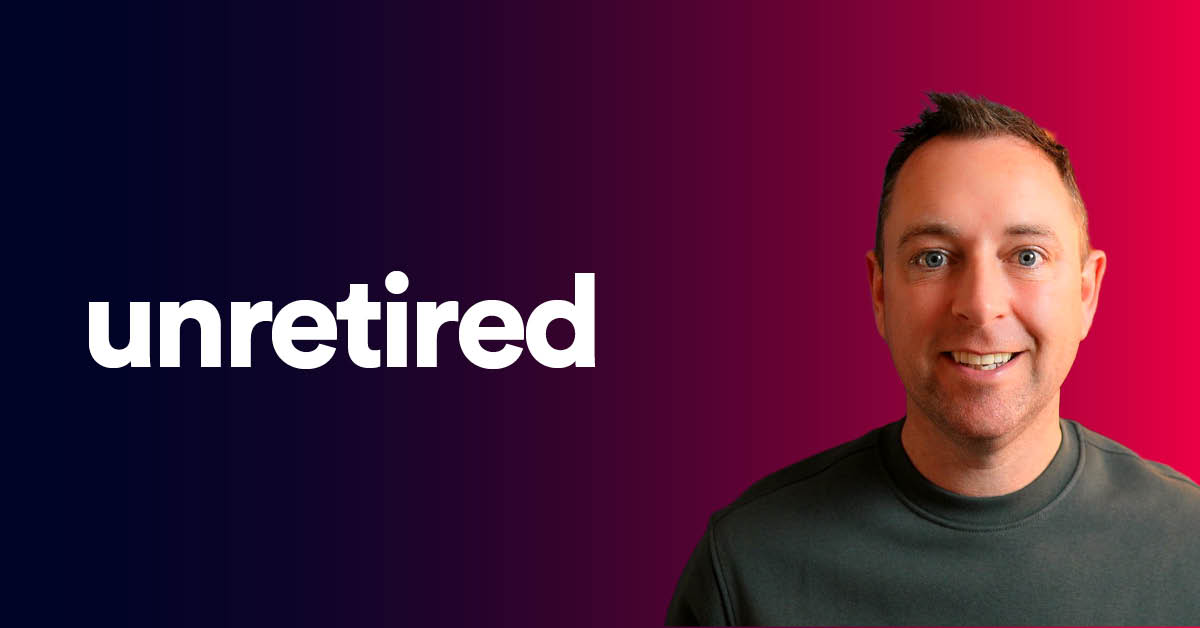I rarely watch daytime TV, but as the Easter break is upon us, I sat and watch a few episodes of “A Place in the Sun” at lunch with the family. Firstly I’m putting it out there now, that presenting A Place in the Sun is my new life ambition. We’ll see how that pans out. Secondly, and the reason this article was a consideration, is because, on each and every advert break, there was an ad for equity release by a major insurance company.
What struck me about the advert was that it wasn’t the “homeowners” in question discussing the benefits of equity release, but rather their adult children. Is this a sign of the times? Whatever the intent of the ad agency, it just felt weird.
To listen to the adverts, equity release is an easy way to free up some money or to make your retirement a more comfortable experience. But is it really?
In my mind, the minute I hear home equity release, I think SCAM. That’s probably because I’ve heard equity release horror stories or read about equity release scandals in the papers or online. However, I’ve never truly given thought to the advantages and disadvantages of equity release and whether or not they are actually a scam.
This article aims to look at equity release objectively and shine a light on the truths. I’ll also provide a narrative on the pros and cons.
Finally, I’ll look at the alternatives to equity release including a very interesting French-inspired alternative to traditional home equity release; the viager system. If that sounds interesting, then please read on.
What is equity release?
Equity release is the name of a range of products exclusively available to those over 55. By taking equity release, you can free up the cash (equity) in your home. The money can be taken as a lump sum, in smaller amounts over a period of time, or a combination of both.
There are two types of equity release options in the UK, the Lifetime Mortgage for those over 55 and Home Reversion available for those over 60. In both cases you will own a lifetime lease guaranteeing you the right to stay in your home until death or when you move into long-term care.
Lifetime mortgages
Lifetime Mortgages are the most common form of equity release and involve taking out a mortgage against some or all of the equity in your home. It’s important to note that you will continue to be the owner of the home in this instance.
With a lifetime mortgage, the interest rate is fixed or capped and you can choose to make the repayments monthly, or you can let the interest roll up or compound to be paid on the sale of the property. The total value of the loan and any interest owed is repaid when the last homeowner dies or moves into long-term care.
With a lifetime mortgage, compound interest is working against you. It can snowball quickly and the longer you live, the greater the cost of the mortgage.
Home reversion
Whenever you take a home reversion equity release, you are selling part or all of the property to a 3rd party. In return for this, you will receive a tax-free lump sum payment or smaller more frequent payments. The provider will offer below market value in the region of 50% of the current value for any percentage you sell.
You can continue to live in the property until the last homeowner dies or moves into care, but there will be strict conditions around maintaining and insuring the property.
When the property is sold after death, the home reversion provider will take their agreed percentage of the proceeds from the sale.
Myths around equity release
There are a number of equity release myths that I’ve come across in my research. Myths that ultimately feel like features touted by the providers. Yet, they are definitely questions people will be asking.
Do you have to take a lump sum?
With the forms of equity release noted above you can split the money you receive into smaller, more frequent amounts over a lump sum. There are benefits to doing this, especially when you consider the savings on interest payments you might attain from delaying large parts of the equity release.
For example: if you release 50% of your equity today, the interest will start now on this entire balance. However if you took 25% now and 25% in 10 years, when needed. This would save a considerable sum on interest payments alone.
You can still move house
All equity release plans approved by the Equity Release Council allow you to move whenever you like.
The plans differ as those with a lifetime mortgage can simply transfer the mortgage to their new home. For those with home reversion equity release plans, however, they have sold a percentage of their property and may not own enough equity to purchase a new property.
You still own your own home
A common misconception about equity release is that you will no longer own your own home. In the UK lifetime mortgages are the most popular type of equity release plan and with this type of contract, you remain the owner of your home until the last owner dies.
One of the biggest fears of those looking at equity release as an option is that they will be forced from their home in their elder years. You cannot be forced to move from your home as you are the owner until death.
You will be able to leave an inheritance
With both a lifetime mortgage and home reversion, you can ring-fence a proportion of your property equity for inheritance. This percentage of the value of the home is completely outside of any equity release terms. And if you use a provider who has a no negative equity guarantee, then those who inherit the remainder of your property, won’t be liable for any additional costs.
Advantages of equity release
The main benefit of equity release is that you are given access to money to spend now. Rather than equity being tied up in your property, you have the ability to use this to fund your later years.
It is not for everyone and but there are situations where it might be a valid option. A single person with no one to leave their estate to for example.
Disadvantages of equity release
You don’t get the full value of your house
The primary disadvantage of equity release is that you will never receive the full market value for your home. According to Money Helper, you will normally get between 20% and 60% of the market value of your home (or of the part you sell).
In the following example, we assume a 50% rate from the equity release provider. If the property is valued at £400,000 and you want to sell 50% of it, then instead of £200,000 you may only get £100,000.
Equity release is an expensive option
There are significant costs associated with setting up arrangements or valuation fees that are needed for an equity release on your home. Some of these can be many thousands of pounds and the cost is usually upfront, though some providers will remove this from the balance you receive.
Higher interest rates are normal
Generally speaking, the rates of interest in an equity release lifetime mortgage are higher than you would get for a normal mortgage. According to Moneyfacts, the average fixed rate in October 2022 was 7.55 per cent.
The interest rates are usually capped or fixed for the duration of the term but as they are generally quite high, to begin with, the interest paid compounds quickly (against your estate).
Equity release may affect your state benefits
When assessing state benefit entitlement, the Government uses means testing to determine if you qualify for certain benefits. This is based on your capital, savings and income. Equity release is classed as a loan and as such exempt from means-tested benefits calculations. As it is not classed as income and it should not affect benefit payments.
If you choose an alternative to equity release such as the VIAGER below, then you may have gained income or assets that put you above the benefits threshold. If that is the case, then your Pension Credit, Universal Credit and Council tax reduction may be affected by equity release.
Alternatives to equity release
Downsize your home
For anyone considering equity release, the safest and cheapest way of releasing equity in your home is to downsize. Over many decades the equity in your property has likely grown considerably and the number of people in your four walls likely decreased. Does your home meet your needs today or possible needs in the future? Considering downsizing can have a huge impact on your life and finances, but for most people, the benefits are considerably greater than the drawbacks.
Retirement Interest Only Mortgages (RIOs)
During my research, another product caught my eye that might be a suitable option for some. Retirement interest-only mortgages are similar to lifetime mortgages but you MUST make monthly payments.
While not a traditional equity release product, you receive a lump sum of cash secured against your property in return for monthly interest payments. For those with a stable income through pensions or other means, this can be an efficient way to release equity in your home.
The key benefit of an RIO is that its cost is significantly cheaper than a lifetime mortgage. With an RIO you pay off the interest each month, whereas, in a lifetime mortgage, it grows and compounds against you during the term.
At the end of the term, when you die, the remaining loan amount is paid from the estate or by the inheritors to clear the mortgage.
Viager – A French alternative to equity release
A few years back, a homeowner in St Albans made headlines across the UK when he put his home on the market for over £250,000 less than the typical asking price. The homeowner, 64-year-old Peter Yielding had one clause or condition on the sale. That he is allowed to continue living in the property rent-free until he chooses to move out through death or into care).
And while this caused a bit of a stir here in the UK, for our French neighbours this is a common occurrence. So much so, that they call it a viager arrangement.
The main difference between the viager system and Mr Yielding’s proposal is that he wished to receive the full sum of his property upfront, whereas, under the viager system, the seller of the property will receive a regular and guaranteed income for the remainder of their life.
This arrangement does favour the seller if they live longer and because the buyer must wait a considerable period of time to release their equity. With that in mind, both parties need to be comfortable with the arrangement. But if approached openly, this can be a mutually beneficial arrangement for all parties.
While there are fees associated with setting up a viager arrangement, you are essentially cutting out the middle man and their costs. In the UK a contract for a viager arrangement can be drawn up by a solicitor relatively easily, though the main challenge might be to find a buyer who will agree to your terms and conditions.
For many pensioners in the UK, a viager arrangement might be the perfect balance between releasing equity and retaining the ability to live in their own homes.
How do I get advice on equity release?
If you are considering equity release, then it is always a sound decision to speak to a qualified financial advisor about the options available to you. They should give you honest and impartial advice based on your specific and unique situation.
It is important to note that many of the advisors work with companies that provide equity release and will receive a fee if you choose to arrange your plan through their services. This should always be documented and explained to you in advance however and the advice should come impartially and separate.
Frequently asked questions
Do I need a no-negative equity guarantee?
Whenever you are considering an equity release product, this is a huge concern and walk away from any provider who does not provide this. This guarantee means that when the home is sold, if the amount left after all fees are paid, is not enough to repay the outstanding loan to your provider, neither you nor your estate will be liable to pay any additional money. All equity release providers who are members of the Equity Release Council offer this as standard.
Who are the Equity Release Council?
The Equity Release Council represents the equity release sector and exists to promote high standards of conduct and practice in the provision of and advice on equity release which have consumer safeguards at its heart.
These standards and safeguards have allowed the sector to grow, giving financial advisers and their customer’s confidence in the products, dispelling myths about equity release, and educating the public about the potential to access the wealth in their home for a variety of uses.


